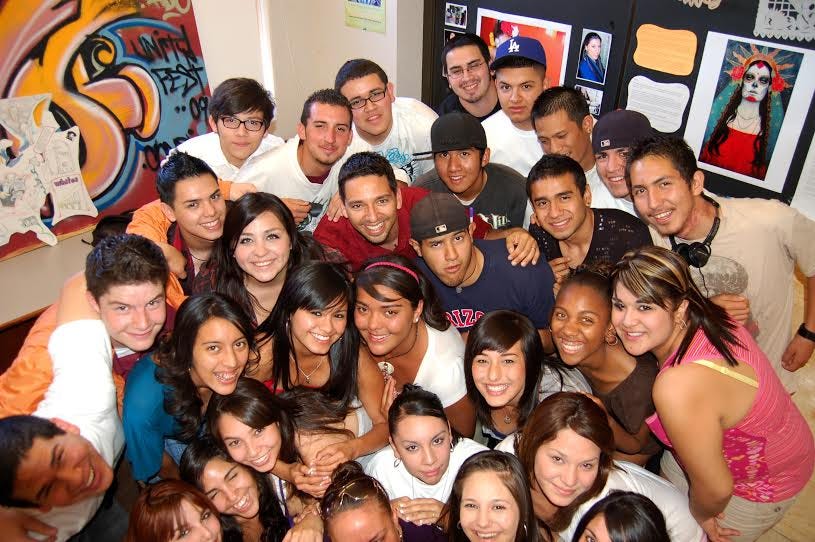📚🌈 The Rise of Culturally Relevant Education in Arizona: Expanding Minds, Empowering Students
🌱 Seeds of Change: The TUSD Story 🏫 Expanding Horizons: African American Studies in the Valley 📖 Beyond Textbooks: A Rich, Multifaceted Curriculum
😽 Keepin’ It Simple Summary for Younger Readers
👧🏾✊🏾👦🏾
📚🌈 Schools in Arizona are teaching new classes that tell stories about different groups of people who live in America. These classes talk about African Americans, Native Americans, and Mexican Americans. 🏫👥 Students learn about history, but also cool stuff like music and art. 💡🌟 Kids in these classes say they feel happy to learn about their own backgrounds. Even though some grown-ups don't like these classes, many teachers and students think they're important for understanding each other better and making the world a friendlier place for everyone.
🗝️ Takeaways
🔄 TUSD's Mexican American Studies program shutdown in 2012 led to the creation of broader culturally relevant courses
📈 Enrollment in culturally relevant courses has grown from 400 to over 2,000 students in some districts
🎨 Courses incorporate diverse materials, from classic literature to contemporary music
🗣️ Students report feeling more connected to their education when their cultural heritage is reflected
🤝 Educators emphasize critical thinking and empathy, not guilt, in teaching these courses
🌉 Despite challenges, these programs are seen as crucial for preparing students for a diverse world
📚🌈 The Rise of Culturally Relevant Education in Arizona: Expanding Minds, Empowering Students
🌱 Seeds of Change: The TUSD Story
The journey of culturally relevant education in Arizona is deeply rooted in the experiences of the Tucson Unified School District (TUSD). In 2012, TUSD's Mexican American Studies program faced a significant setback when it was shut down under a controversial law. Curtis Acosta, a former teacher in the program, described this period as "dehumanizing" but highlighted the program's success in helping students recognize their "scholarly potential."
Despite this challenge, TUSD persevered. In 2014, the district introduced "culturally relevant" courses as a replacement. Lorenzo Lopez, who directed the new department, recalled the intense scrutiny these courses initially faced: "It was not pleasant. But, of course, the district complied — provided all documentation, all reports, all curriculum, all resources."
Today, TUSD's culturally relevant program has flourished, with over 6,400 students taking these classes across middle and high school levels.
🏫 Expanding Horizons: African American Studies in the Valley
Inspired by Tucson's model, other Arizona districts began introducing their own culturally relevant courses. In 2003, Natasha Alston pioneered what is believed to be the state's first African American History course at Mountain Pointe High School. By the 2023-24 school year, Alston was teaching Arizona's first AP African American Studies class, part of a nationwide pilot program.
The Phoenix Union High School District has seen remarkable growth in its offerings, with enrollment surging from around 400 students to over 2,000 in just a few years.
Students can now choose from English and history classes focused on African American, Native American, and Mexican American perspectives.
📖 Beyond Textbooks: A Rich, Multifaceted Curriculum
These courses go beyond traditional history lessons, incorporating literature, art, music, and contemporary issues.
Brianne Gatewood, who teaches "English from the African American Perspective" at Phoenix Union's Metro Tech High School, emphasizes the "joys of Black culture" in her curriculum.
Students analyze works ranging from Maya Angelou's poems to Beyoncé's music, connecting historical themes to present-day realities.
👥 Student Voices: Finding Themselves in the Curriculum
For many students, these classes offer a chance to see themselves reflected in their education.
Xzalaihya Robertson, a 17-year-old in Alston's AP class, says, "As an African American person, it also shows me part of who I am. And I think that's important."
Abraham Claiborne, another student, adds”
"Regardless of how hard and difficult it might be to hear how other people suffered and went through atrocities, it's also what America is kind of based off of. We have to learn about it so we can build on that and move on and move forward as a society."
🧭 Navigating Challenges: The Road Ahead
Despite the growth of these programs, challenges remain. The debate over how race should be taught in schools continues, with some pushing back against what they perceive as divisive content.
However, educators like Alston and Deena Sellers at Brophy College Preparatory emphasize that their courses are not about inducing guilt but instead providing a more complete picture of American history and fostering critical thinking and empathy.
🌟 Looking to the Future: A More Inclusive Education
As culturally relevant courses continue to expand in Arizona, they represent a powerful tool for engaging students, broadening perspectives, and fostering a more inclusive understanding of American history and society.
The growth of these programs, from their contentious beginnings in Tucson to their current widespread adoption, demonstrates the resilience of educators and the hunger among students for a more comprehensive education.
As Arizona continues to navigate the complex landscape of culturally relevant education, the experiences of districts like TUSD and the insights of educators like Acosta and Alston provide valuable lessons for creating a more equitable and inclusive educational system.






